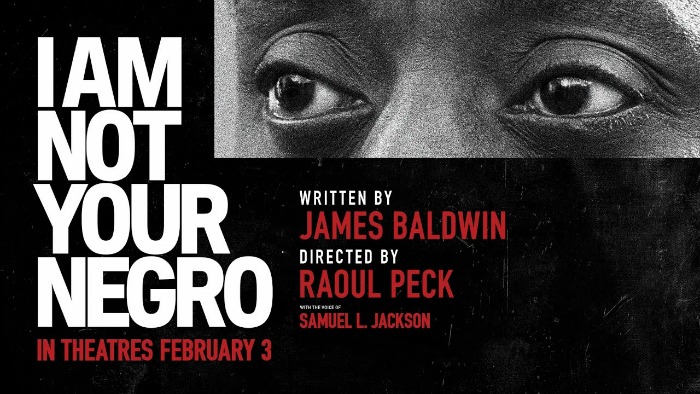Now more than ever, Raoul Peck’s I Am Not Your Negro looks to be an important film, both because it comes at a critical moment in the country’s history, and because, well, we could all use some inspiration. Here’s a synopsis of the film, which opened on February 3:
In 1979, James Baldwin wrote a letter to his literary agent describing his next project, Remember This House. The book was to be a revolutionary, personal account of the lives and successive assassinations of three of his close friends—Medgar Evers, Malcolm X and Martin Luther King, Jr.
At the time of Baldwin’s death in 1987, he left behind only thirty completed pages of his manuscript.
Now, in his incendiary new documentary, master filmmaker Raoul Peck envisions the book James Baldwin never finished. The result is a radical, up-to-the-minute examination of race in America, using Baldwin’s original words and flood of rich archival material. I Am Not Your Negro is a journey into black history that connects the past of the Civil Rights movement to the present of #BlackLivesMatter. It is a film that questions black representation in Hollywood and beyond. And, ultimately, by confronting the deeper connections between the lives and assassination of these three leaders, Baldwin and Peck have produced a work that challenges the very definition of what America stands for.
Further, Peck, the celebrated filmmaker behind works such as HBO’s Sometimes In April (2005), Lumumba (2000), and the Cannes feature selection Man By The Shore (1993), to name only a few, wrote this about his motivations behind the film:
Medgar Evers died on June 12, 1963.
Malcolm X died on February 21, 1965.
And Martin Luther King Jr. died on April 4, 1968.
In the course of five years, these three men were assassinated.
These three men were black, but it is not the color of their skin that connected them. They fought on quite different battlefields. And quite differently. But in the end, all three were deemed dangerous. They were unveiling the haze of racial confusion.
James Baldwin also saw through the system. And he loved these men. These assassinations broke him down.
He was determined to expose the complex links and similarities among these three individuals. He was going to write about them. He was going to write his ultimate book, Remember This House, about them.
I came upon these three men and their assassination much later. These three facts, these elements of history, from the starting point, the “evidence” you might say, form a deep and intimate personal reflection on my own political and cultural mythology, my own experiences of racism and intellectual violence.
This is exactly the point where I really needed James Baldwin. Baldwin knew how to deconstruct stories. He helped me in connecting the story of a liberated slave in its own nation, Haiti, and the story of modern United States of America and its own painful and bloody legacy of slavery. I could connect the dots.
In addition to over 25 awards and nominations for excellence, the film is up for a 2017 Academy Award in the Best Feature Documentary category.
Additional links:

